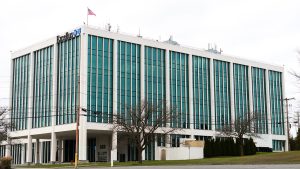College football bowl games have long served as promotional vehicles for consumer brands. Some, like Allstate and Chick-fil-A, are established household names. Others, like Geneva–based Cheribundi, Inc., use the spotlight offered by bowl sponsorships to introduce their brand to a national audience. For the past two bowl seasons, Cheribundi, a producer of tart cherry juice health […]
Get Instant Access to This Article
Become a Central New York Business Journal subscriber and get immediate access to all of our subscriber-only content and much more.
- Critical Central New York business news and analysis updated daily.
- Immediate access to all subscriber-only content on our website.
- Get a year's worth of the Print Edition of The Central New York Business Journal.
- Special Feature Publications such as the Book of Lists and Revitalize Greater Binghamton, Mohawk Valley, and Syracuse Magazines
Click here to purchase a paywall bypass link for this article.
College football bowl games have long served as promotional vehicles for consumer brands. Some, like Allstate and Chick-fil-A, are established household names. Others, like Geneva–based Cheribundi, Inc., use the spotlight offered by bowl sponsorships to introduce their brand to a national audience.
For the past two bowl seasons, Cheribundi, a producer of tart cherry juice health drinks, has served as the title sponsor of the Boca Raton Bowl.
The 1.4 million viewers who tuned in to ESPN last December to watch the UAB Blazers defeat the Northern Illinois Huskies were exposed to Cheribundi’s name, logo, and commercials throughout the broadcast.
In a recent interview, Michelle Grech, Cheribundi’s chief marketing officer tells CNYBJ how the company became involved in that national television sports sponsorship.
Cheribundi has had an association with sports from its beginning. In 2004, former professional tennis player John Davey was advised to eat tart cherries to alleviate pain from his sports injuries. When the remedy worked, Davey was inspired to approach Cornell University food scientists to help him develop a commercial tart-cherry juice. That led to the founding of CherryPharm, the company that ultimately became Cheribundi.
Since then, Cheribundi has grown to employ more than 100 people and currently operates an 80,000-square-foot manufacturing facility in Geneva. The company declines to disclose its annual revenue. But in July 2016 the Finger Lakes Times reported that Cheribundi’s annual sales at that time were “about $10 million.”

Cheribundi distributes its beverages nationally through retail outlets such as Costco, Walmart, Target, and Amazon, as well as various grocery and drug stores.
Cheribundi touts its tart cherry juice as an all-natural aid in muscle recovery and relief of soreness through antioxidants. The drinks are also promoted as a way to relieve pain from arthritis and gout. On top of that, tart cherries are a source of natural melatonin, which aids in sleep.
While Grech emphasizes that Cheribundi’s mission is “to help people in their every day health and wellness routine,” and that its products are not strictly for athletes, the company has many connections to high-profile sports.
“We have almost 250 sports teams, professional and college, that use our product,” she says.
According to Grech, Cheribundi’s sports customers include 75 percent of NFL teams, about 60 percent of the NBA, approximately half of Major League Baseball and NHL teams, and “every major college [athletic program], except for a few.”
“Nutritionists of the teams purchase [Cheribundi] as part of the daily routine for their athletes,” Grech says.
Two-time Olympic gold-medal gymnast Aly Raisman is featured in Cheribundi’s television commercials and is also an investor in the company, according to Grech.
Cheribundi has sought to highlight those athletic relationships in its marketing. Grech, who served as the president of a sports marketing agency prior to joining Cheribundi, says, “We had been looking to find a way to showcase the connection between Cheribundi and the athletic world.”
She adds that a basic message the company wants to convey to the general public is, “If our product is good for athletes, it’s good for you.”
That marketing goal, along with “longstanding relationships” that Grech and Cheribundi CEO Steve Pear had with ESPN, led them to discover the title-sponsorship opportunity for the Boca Raton Bowl. ESPN owns and operates the Boca Raton Bowl and more than a dozen other college bowl games.
Cheribundi took on the sponsorship because it fit with the company’s athletic-themed message, and also its desire to grow brand awareness.
“Having a title sponsorship for an event really gets your name out there,” Grech says. “One of our biggest goals for our brand is brand awareness. We really wanted people to start talking about us and learn our name.”
Grech notes that college bowl season is among the most-watched periods of the year on ESPN. She adds that Boca Raton was a particularly attractive venue because Florida is one of Cheribundi’s strongest markets in terms of both retail partners and consumers.
Cheribundi signed a three-year title sponsorship agreement with the Boca Raton Bowl in 2017. Grech could not disclose the financial terms of the deal. When asked how Cheribundi’s agreement compared to the reported $300,000 that the municipality of Elk Grove Village, Illinois paid to sponsor the ESPN-owned Bahamas Bowl, she did concede that ESPN’s sponsorship packages are highly customizable and that the Elk Grove Village deal would be considered a “starter package” among the many options.
The first year of the Boca Raton Bowl deal entitled Cheribundi to be included in the bowl’s name and logo, branding on the field of play, television and radio commercial inventory, mentions and features throughout the game broadcast, and game tickets.
In the second year, the deal was expanded to include marketing rights to seven other bowl games and 10 college basketball “classics.” At those events, Cheribundi’s benefits include courtside signage, game tickets, and the ability to do product sampling at the venue.
Of the marketing value of the title sponsorship, Grech says, “Because of all the branding surrounding the game, it’s basically like $14 million worth of media impressions.”
Grech characterized the feedback Cheribundi has received from its two years of bowl sponsorship as “tremendous.” She adds that brand-equity studies have shown that Cheribundi’s awareness has increased recently and one of the reasons has been the Boca Raton Bowl.
When asked about the possibility of Cheribundi extending the sponsorship, Grech says there is an option for an additional fourth year on the deal and that Cheribundi is “in discussion with ESPN about what a go-forward plan looks like.”
Regardless of how those talks proceed, when two football teams face off for a bowl game at Boca Raton’s FAU Stadium this coming December, the Cheribundi brand will be there alongside them in the national spotlight.




